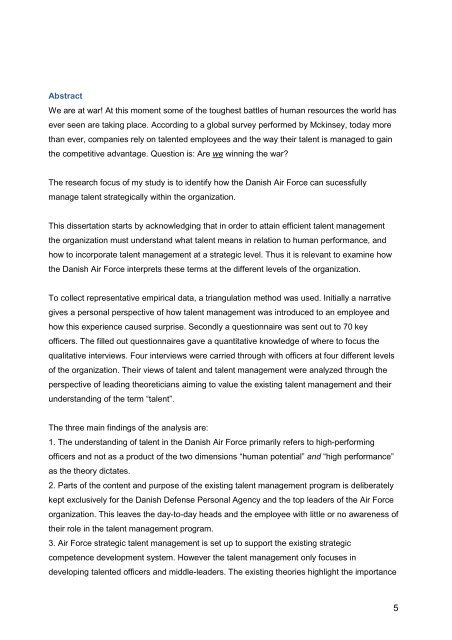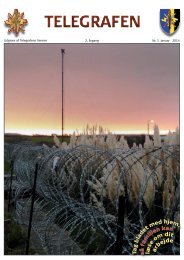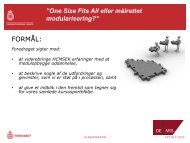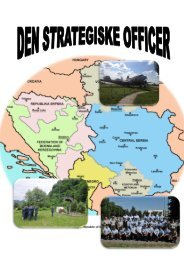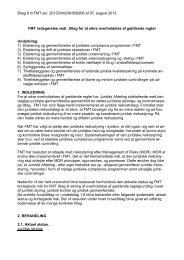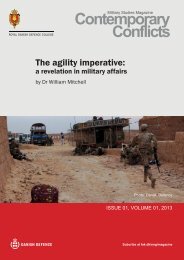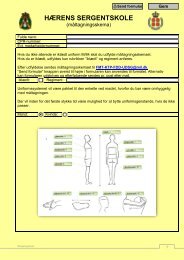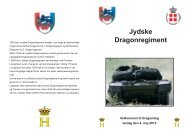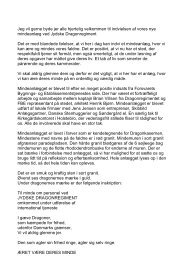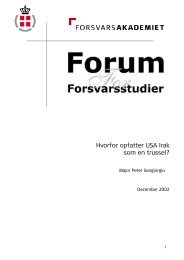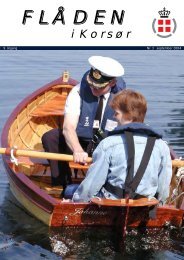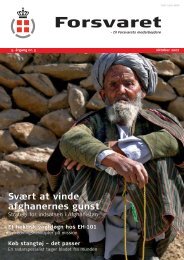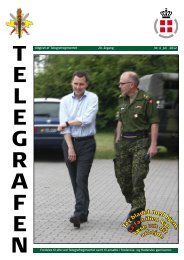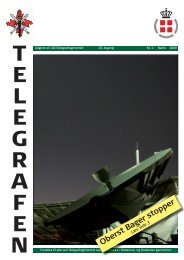Talentudvikling i Flyvevåbnet.pdf - Forsvarskommandoen
Talentudvikling i Flyvevåbnet.pdf - Forsvarskommandoen
Talentudvikling i Flyvevåbnet.pdf - Forsvarskommandoen
You also want an ePaper? Increase the reach of your titles
YUMPU automatically turns print PDFs into web optimized ePapers that Google loves.
Abstract<br />
We are at war! At this moment some of the toughest battles of human resources the world has<br />
ever seen are taking place. According to a global survey performed by Mckinsey, today more<br />
than ever, companies rely on talented employees and the way their talent is managed to gain<br />
the competitive advantage. Question is: Are we winning the war?<br />
The research focus of my study is to identify how the Danish Air Force can sucessfully<br />
manage talent strategically within the organization.<br />
This dissertation starts by acknowledging that in order to attain efficient talent management<br />
the organization must understand what talent means in relation to human performance, and<br />
how to incorporate talent management at a strategic level. Thus it is relevant to examine how<br />
the Danish Air Force interprets these terms at the different levels of the organization.<br />
To collect representative empirical data, a triangulation method was used. Initially a narrative<br />
gives a personal perspective of how talent management was introduced to an employee and<br />
how this experience caused surprise. Secondly a questionnaire was sent out to 70 key<br />
officers. The filled out questionnaires gave a quantitative knowledge of where to focus the<br />
qualitative interviews. Four interviews were carried through with officers at four different levels<br />
of the organization. Their views of talent and talent management were analyzed through the<br />
perspective of leading theoreticians aiming to value the existing talent management and their<br />
understanding of the term “talent”.<br />
The three main findings of the analysis are:<br />
1. The understanding of talent in the Danish Air Force primarily refers to high-performing<br />
officers and not as a product of the two dimensions “human potential” and “high performance”<br />
as the theory dictates.<br />
2. Parts of the content and purpose of the existing talent management program is deliberately<br />
kept exclusively for the Danish Defense Personal Agency and the top leaders of the Air Force<br />
organization. This leaves the day-to-day heads and the employee with little or no awareness of<br />
their role in the talent management program.<br />
3. Air Force strategic talent management is set up to support the existing strategic<br />
competence development system. However the talent management only focuses in<br />
developing talented officers and middle-leaders. The existing theories highlight the importance<br />
5


